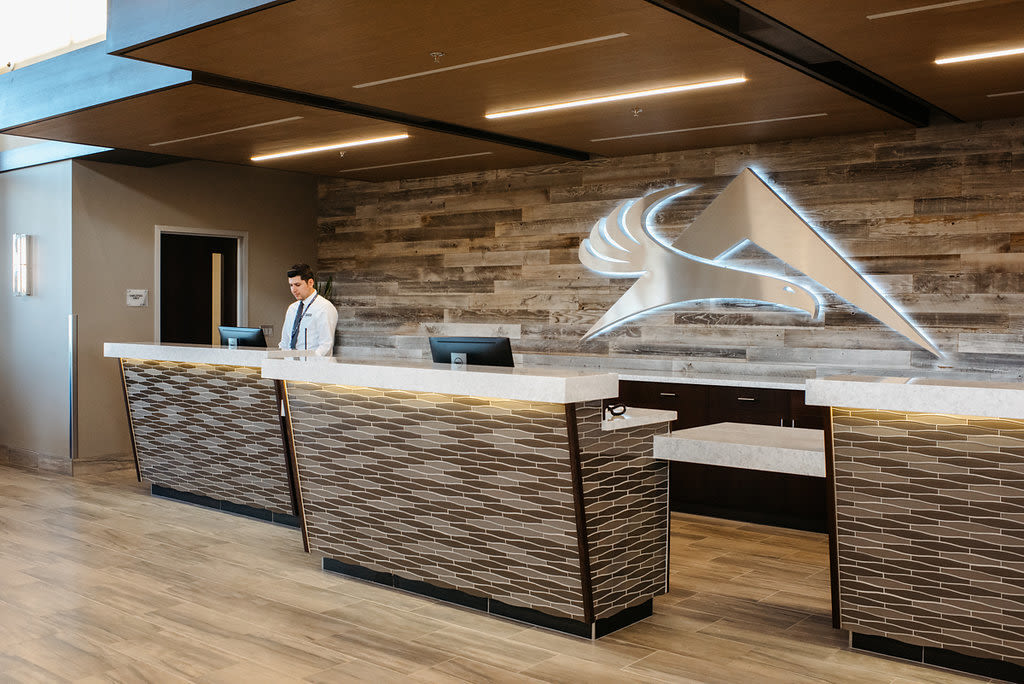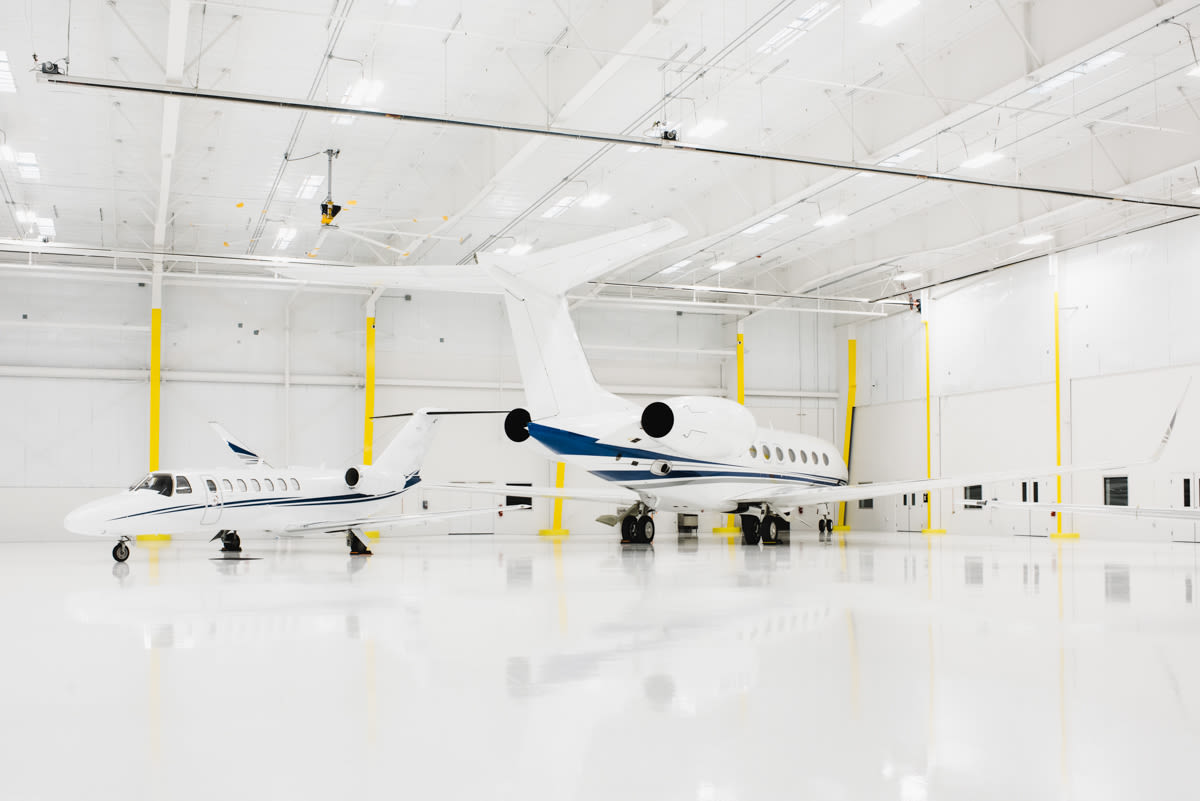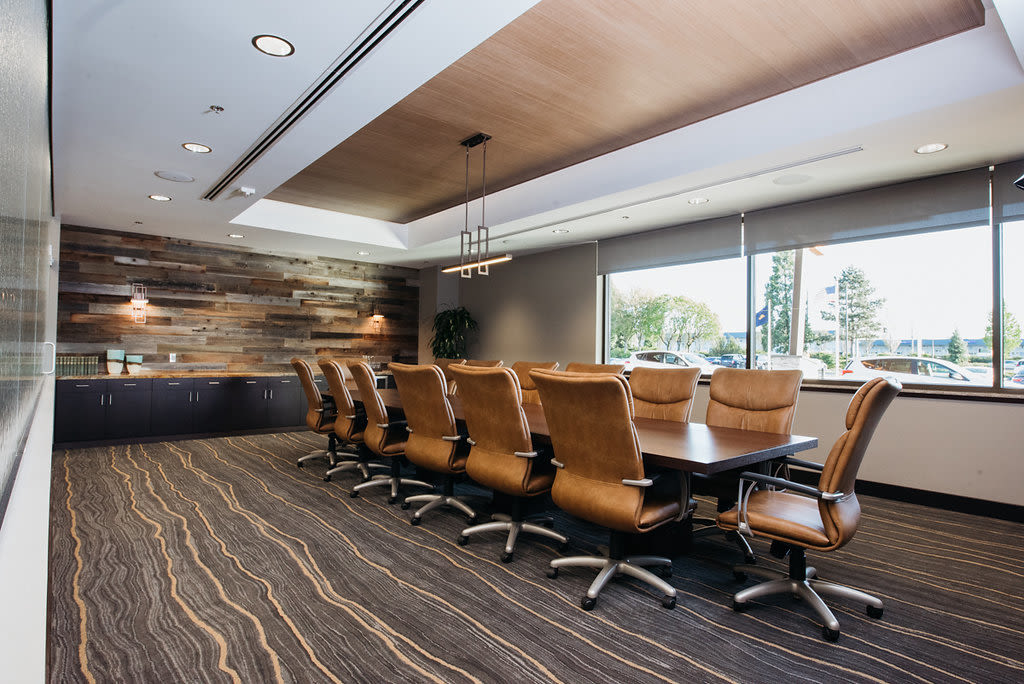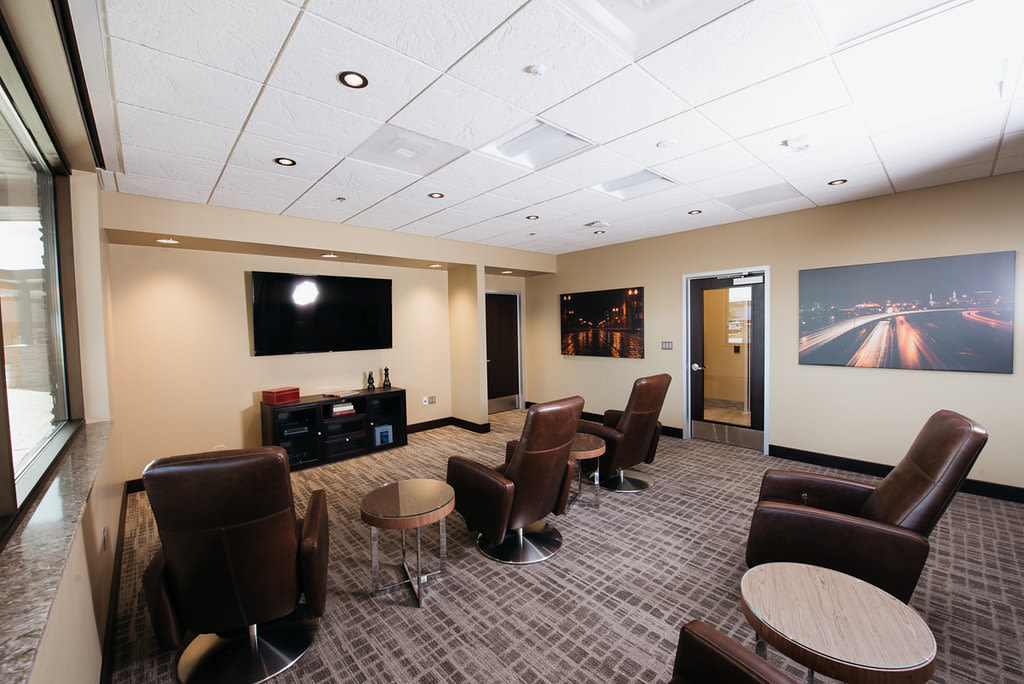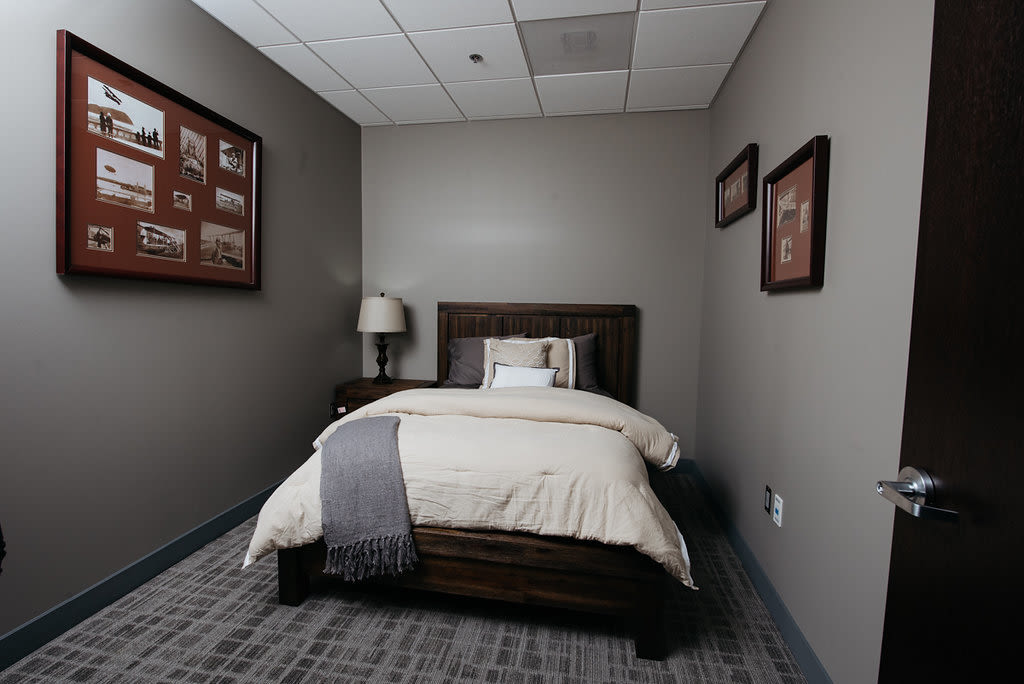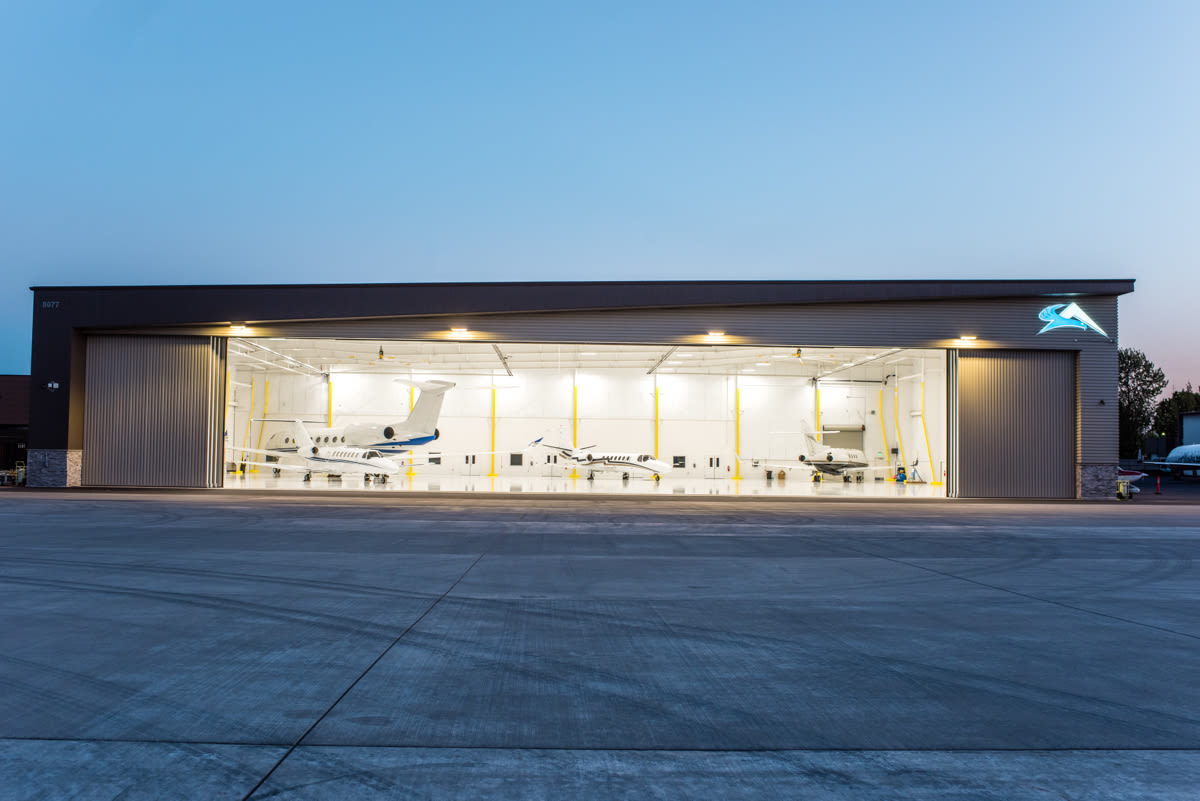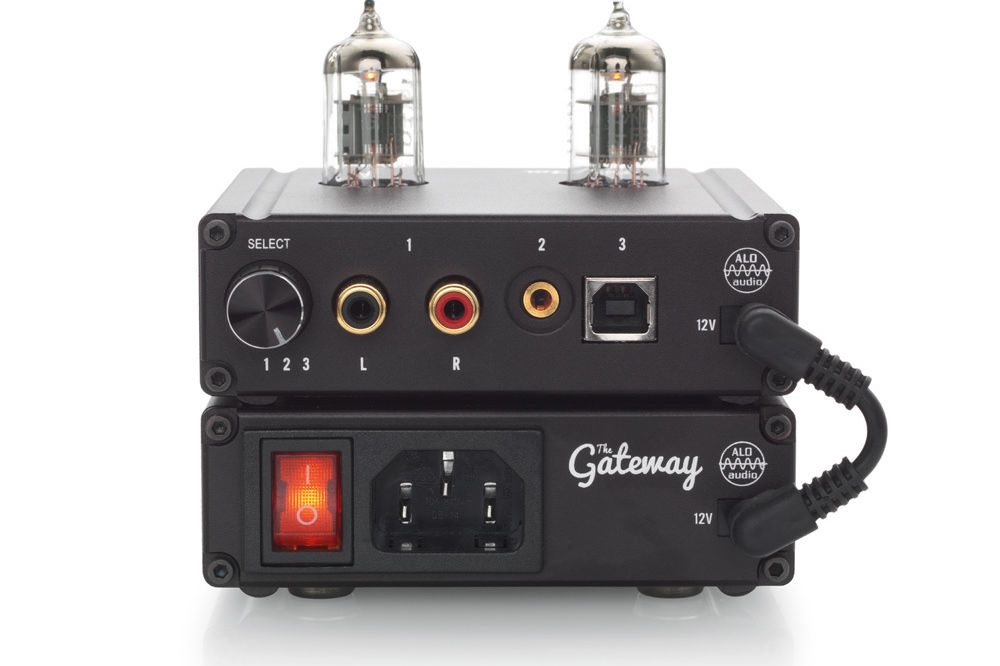Welcome to the Portland Airport's Brand-New Elite Terminal
A question that vexes many Portlanders: where do you park your private jet?
OK, maybe not that many Portlanders. But if you’re flying into PDX on your own wings, the answer is Atlantic Aviation, a brand-new, $25 million private terminal tucked in an unassuming stretch of Airport Way.
Atlantic is what’s known as a “fixed-base operator” or FBO, a small private terminal for passengers boarding charter flights and private planes. Far from being a niche industry, FBOs are a crucial component of the aviation ecosystem. Commercial airliners account for only a third of the planes in the air at any given time. Most of the rest are private aircraft or planes for hire—and those planes have to land, refuel, and get repaired somewhere. Atlantic owns more than 60 of these terminals across the country—but the Portland facility just became the Texas-based company’s crown jewel. Opened in February, it replaced PDX’s old FBO, a Flightcraft terminal dating to the late ’90s.
Walking into the high-ceilinged lobby off Airport Way is an experience starkly different from the bracing bustle of PDX’s public terminal. The room is spacious but warm, with cushy seating and fireplaces. The staggered service counters bring staff shoulder to shoulder with passengers instead of face to face. Atlantic even uses a signature scent, which contains—no joke—a hint of jet fuel. The two hangars, stark white and immaculate, evoke the clean room in an Intel factory. One-third of the space in the main building is devoted to dedicated lounges, storage, and even bedrooms for pilots and line technicians, which serves to keep staff healthy and rested.
“When you’re getting onto a five-star aircraft, you want to go through a five-star terminal,” says Jon Wenrich, head of aviation development at Portland’s Centrex Construction, which built the facility. (Centrex is also responsible for a gleaming new private terminal in Hillsboro.)
Traffic at Atlantic isn’t all glam. Beyond private and charter flights, the facility serves medical flights, including those for sick kids going to and from Doernbecher Children’s Hospital. And in the event of a natural disaster—say, a large earthquake—it’s also where FEMA would route emergency relief supplies.


